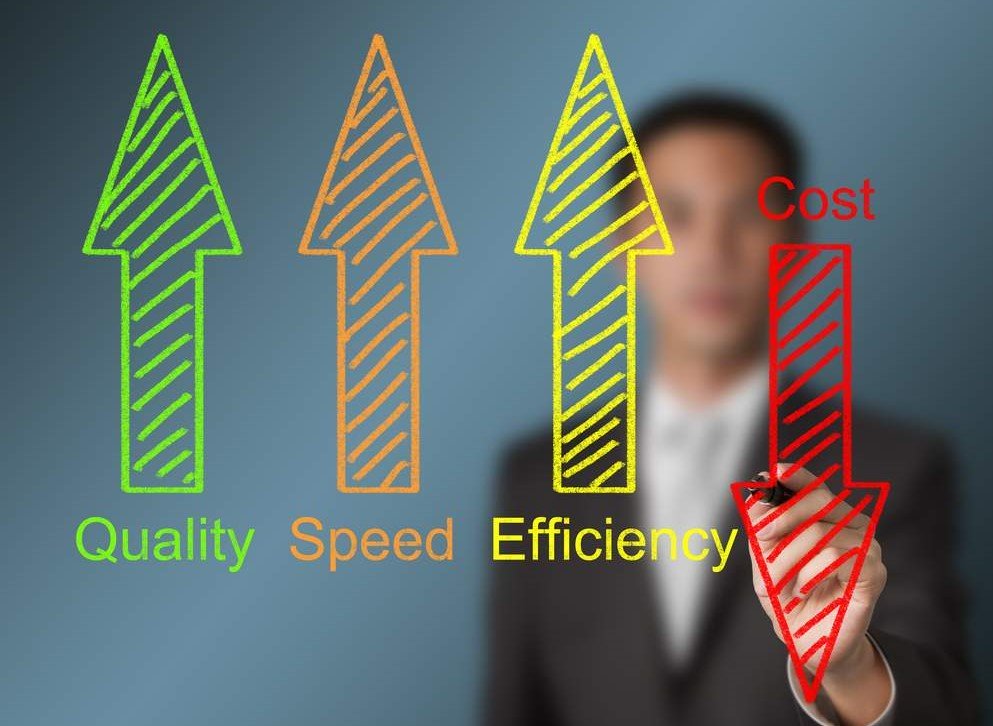Coming from a recruitment agency background as my introduction to the legal industry, I am familiar with the desire for flexible working arrangements. Whether that means being able to work remotely, adjustable office work hours or just being able to step out of the office to go to a school recital, medical appointment or attend to any other family matter. In this article I’ll walk you through our journey from traditional work practices to a NewLaw flexible workplace, and how myself and my team have made changes in the way we do our jobs. It was definitely not as straightforward as I thought it would be!
As a born and bred Venezuelan woman, I am used to women being fierce and expressing their opinion loud and clear (okay, maybe more loud than clear). My mother raised me to want to be the best version of myself in anything I put my interest in, which included university and my professional career. I surrounded myself with very ambitious and hard-working women back home. We didn’t quite fit into most groups, but we liked being the ones that didn’t “waste time” in pointless romantic relationships and instead studied and worked hard so that we would never have to ask men to pay for anything we needed. We even joked about who would be the last to get married — and we all wanted to be last! Perhaps this is more common where you come from, but it wasn’t common or celebrated where I come from. My concept of independence was somewhat flawed and looking back I think I believed that having a family meant the end of my professional career and personal life/independence.
Needless to say, life has changed! This is my seventh year in Hong Kong and I have a 15-month-old baby girl that indeed changed my life in the most beautiful way possible, but — wow! I really didn’t know the struggles that the early days of motherhood brings at work…
I am very fortunate to work in a company with a kind, understanding and flexible culture because, without a doubt, I needed all of that during the first 15 weeks of pregnancy. Whoever gave “morning sickness” that name was probably a man… all the sickness and feelings of anxiety were my day to day (from morning all the way to the evening) for what felt like the longest first trimester, which is why I decided to speak with our founder before even sharing the news with most family and friends. At KorumLegal we are all for innovation, flexibility and agile working, however at that point we didn’t have an internal case that called for “Flex Policies” so this was going to be the case study and now an initiative that I would own in the company.
As some of you might know already, while the most obvious benefit of flexibility is greater work-life balance for employees, it also helps employers attract and retain talent while improving productivity.
In fact, a recent Stanford study in China showed that letting employees work from home increased productivity by 13 percent and reduced turnover by 50 percent — I can personally say that my level of commitment to the job, my sense of appreciation and my productivity increased. Pre-baby, working from home meant no interruptions and not having to commute made the morning sickness tolerable. Part of my job includes talking to people in different time zones via video conferencing tools and I was perfectly able to carry on having virtual coffees, discovery meetings and online interviews while working remotely — a match made in heaven!
Something else happened afterwards though. Reaping the benefits of the flexible working arrangements made sense personally and professionally — I continued having a mix of remote work and ‘flexi hours’ later in my pregnancy and left on maternity leave just in the peak of our growth in the Client Solutions Team, Community Engagement and our expansion to EMEA.
With all the excitement in the business and having very little idea of what was to come, I agreed to take a three-month maternity leave, I mean why not? Three-month-olds are big enough and I’ll surely be fully recovered (clueless pre-baby me). Nothing could have prepared me for the tsunami of emotions, exhaustion and hormones that come after having a baby, though everyone’s experience is different. I somehow thought that the whole parenting thing was a bit more… practical? It wasn’t, not in our case anyway.
Having an honest conversation with my boss was key to keeping my mental health, together. We worked on a plan to get back to work not three months after but four months after. We agreed to do this on stages where I returned first on a part-time basis and mostly working from home. We had two new employees by then in Hong Kong and a managing director in London to distribute the workload, plus babies do sleep a lot better before the terrible four-month sleep regression, so I had lots of quiet time to disconnect from motherhood and focus on work at home.
What I didn’t consider with this approach was that I would miss out from not being in the office where all the conversations happen and daily brainstorming and camaraderie occurs, which is one of the reasons I love what I do: connection. Working remotely can be very isolating, being the only new mum in a very small office felt a little lonely even with all the support from my colleagues. It quickly started feeling as though I wasn’t as much a part of the team as I was pre-baby.
Engagement
My personal situation got me thinking of our business model and how most of our consultants are also spread around the world, working remotely. We want our community of lawyers to feel engaged and motivated, whether they are working on assignments or waiting to get one, so I felt the need to practise some of the advice we share with our team, working with our head of communications to contribute in as many community engagement initiatives as possible.
A recent survey performed by Thomson Reuters of more than 2,000 managers and employees in 10 different countries found that employees will work harder if they have a sense of connection. For this reason, it is important to train employees and leaders internally to manage remote consultants and remote employees. It is not just a matter of facilitating technology and changing internal policies, the company culture needs to adjust. In my case it meant more Zoom calls actually using the camera; that itself made a huge change, it forced me to always dress the part instead of working in my pyjamas and seeing my colleagues definitely made me feel part of the day-to-day discussions, especially the more casual and human ones.
It also meant that I had to constantly remind my colleagues (and sometimes our founder) that ‘work from home days’ are not ‘days off’ and that I am still able to take on the more complex work, but do it remotely — sometimes not seeing your colleagues in the office makes you forget that they are a video call away to providing any feedback, share ideas and updates as they happen.
This is true not only for our employees, but we encourage every consultant in our KorumLegal Community to connect through our Slack channels, where we share weekly industry updates, assignment updates and any interesting articles or conversations to keep everyone informed and, most importantly, engaged. They have the opportunity to speak to us, speak to each other and ask questions to the broader community of lawyers in more than eight jurisdictions. Most recently we launched a quarterly Live Update where the community can hear our news, see us, ask questions and interact via virtual conference in an effort to create that feeling of connection and sense of belonging.
Key takeaways
Whether you are about to be a parent, have people in your team who are raising a family or are going through temporary circumstances affecting their ability to work from the office, our experience hopefully might give you some ideas. These are the few takeaways to make it easier for you:
- Firstly, be sure to have clear and open communication. If I hadn’t voiced my concerns, not only would it have been extremely difficult to work feeling so ill, putting on a brave face while feeling miserable, but I believe my sense of commitment, the quality of my work and overall productivity would have been put in question.
- Secondly, check to see if there are any existing ‘Flex Work’ policies in your business and if they’re not clear enough make sure you are voicing your openness to work on a plan that accommodates your personal needs and your team’s needs. Break it in stages or specific timelines to allow a trial period.
- Thirdly, take ownership for staying connected. As I mentioned earlier, working remotely can create a sense of disconnection from the team. Make it your responsibility to engage with your colleagues — a simple hello goes a long way.
- Finally, being flexible about flexibility has also been important for us at KorumLegal and being a small and lean team, we are able to trial and re-evaluate our strategy. We tailor our internal policies/offering around flexibility to fit our employees, consultants and client needs and motivations.
 Estefania is a business development and marketing specialist with an international background in talent acquisition for in-house legal teams in Hong Kong and Singapore.
Estefania is a business development and marketing specialist with an international background in talent acquisition for in-house legal teams in Hong Kong and Singapore.

































 Titus Rahiri
Titus Rahiri







